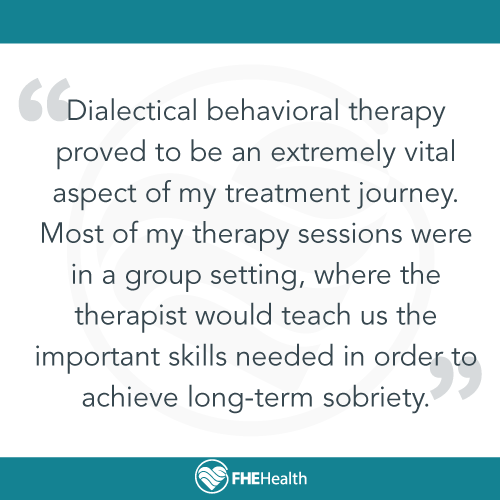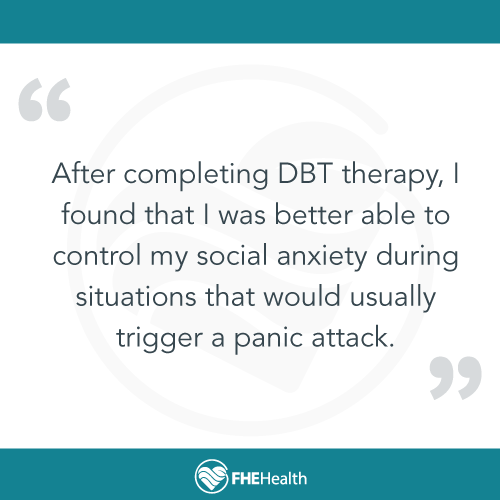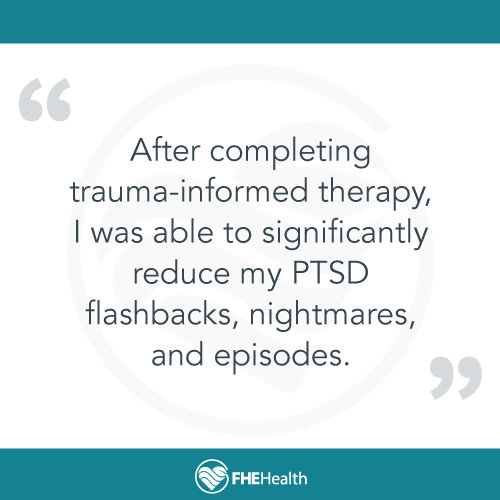
Addiction is a progressive and complex disease of the mind and body, affecting many areas of an individual’s life. According to the National Institutes of Health, 10% of Americans have had substance use disorder at some point in their lives. However, despite the frequency of addiction, 75% of those people did not receive treatment. That being said, many individuals with addiction issues are not acquiring the help they need.
In order to effectively treat addiction, addiction specialists must use a combination of medical treatment and behavioral therapies. There are many different forms of therapies used in addiction treatment. However, addiction therapists will choose a method of therapy based on the patient’s personal needs. For example, some methods of therapy are more useful for patients with trauma, while another type is best suited for those with co-occurring mental health conditions.
My Experience with Therapies
As a recovered addict, I can contest to the importance of finding a type of therapy that is best suited for your specific needs. Many addicts and alcoholics, like myself, suffer from past traumas, co-occurring mental health conditions, and many other important issues to address during treatment. Because of this, addiction treatment staff will conduct an assessment in order to understand your physical, mental, social, and familial background. In doing so, they are able to produce an individualized treatment plan, creating an effective plan of action. Some common forms of therapy used in addiction treatment are dialectical behavioral therapy and trauma-informed therapy. Personally, the combination of both previously mentioned therapies was a pivotal aspect of my addiction treatment journey.
Dialectical Behavioral Therapy
 Dialectical behavioral therapy, or DBT, is used in addiction treatment for dual-diagnosis patients. To explain, dual-diagnosis patients are individuals who suffer from substance use disorder, as well as one or more co-occurring mental health conditions. It is extremely vital for addiction and mental health disorders to be treated simultaneously, in order to prevent individuals from relapsing. For example, when an individual does not learn to manage the symptoms of mental illness, they may begin to self-medicate with illicit substances. However, this form of therapy is typically not used for patients without co-occurring disorders. Therefore, dialectical behavioral therapy is hugely beneficial – but is not always the best option for everyone.
Dialectical behavioral therapy, or DBT, is used in addiction treatment for dual-diagnosis patients. To explain, dual-diagnosis patients are individuals who suffer from substance use disorder, as well as one or more co-occurring mental health conditions. It is extremely vital for addiction and mental health disorders to be treated simultaneously, in order to prevent individuals from relapsing. For example, when an individual does not learn to manage the symptoms of mental illness, they may begin to self-medicate with illicit substances. However, this form of therapy is typically not used for patients without co-occurring disorders. Therefore, dialectical behavioral therapy is hugely beneficial – but is not always the best option for everyone.
During addiction treatment, I was diagnosed with post-traumatic stress disorder (PTSD) and social anxiety disorder. Due to this, my therapist decided to utilize DBT in order to help me develop behavioral skills such as mindfulness, distress tolerance, interpersonal effectiveness, and emotion regulation. Additionally, DBT utilizes occasional individual sessions and skills training group sessions in order to teach patients how to self-regulate their emotions in hopes of preventing future relapse. Dialectical behavioral therapy proved to be an extremely vital aspect of my treatment journey. Most of my therapy sessions were in a group setting, where the therapist would teach us the important skills needed in order to achieve long-term sobriety. In addition to group sessions, I would get an individual session with my therapist once a week. During individual sessions, my therapist would check in with me and determine which areas I needed to improve in, and which areas I had shown growth.
One of the most beneficial lessons I learned from DBT therapy was distress tolerance. Distress tolerance skills allow individuals to successfully navigate through stressful situations, without experiencing severe emotional outbursts or cravings to use drugs. After completing DBT therapy, I found that I was better able to control my social anxiety during situations that would usually trigger a panic attack. While some people may require an alternative form of treatment, dialectical behavioral therapy deserves significant credit in regard to my ability to handle stress, regulate my emotions, and avoid romanticizing self-medicating.
Trauma-Informed Therapy
 Trauma-informed therapy is a method of therapy used for individuals who suffered from past trauma that may have impacted the development of their substance use disorder. During trauma-informed therapy, therapists teach their patients how to cope with emotions, flashbacks, intrusive thoughts, or memories of past trauma. Most importantly, safety is made a priority during this form of treatment. To explain, therapists will provide patients with coping mechanisms in order to manage potentially triggering flashbacks while discussing a traumatic event. In doing so, individuals are able to effectively process their trauma and eventually, leave it in the past. However, this form of therapy is not recommended unless a patient has suffered previous trauma(s).
Trauma-informed therapy is a method of therapy used for individuals who suffered from past trauma that may have impacted the development of their substance use disorder. During trauma-informed therapy, therapists teach their patients how to cope with emotions, flashbacks, intrusive thoughts, or memories of past trauma. Most importantly, safety is made a priority during this form of treatment. To explain, therapists will provide patients with coping mechanisms in order to manage potentially triggering flashbacks while discussing a traumatic event. In doing so, individuals are able to effectively process their trauma and eventually, leave it in the past. However, this form of therapy is not recommended unless a patient has suffered previous trauma(s).
 In my opinion, trauma-informed therapy is one of the most vital therapies in addiction treatment. Many addicts or alcoholics previously suffered trauma before developing a substance use disorder. This was true for me, as a survivor of sexual trauma and domestic abuse. During active addiction, I used my trauma as an excuse to continue to get high. After completing trauma-informed therapy, I was able to significantly reduce my PTSD flashbacks, nightmares, and episodes. For example, being around loud men would trigger flashbacks of my domestic abuse, so much so that I would avoid certain social situations. Today, I am engaged to the love of my life and no longer flinch every time he moves his arm or raises his voice in excitement. As a result of trauma-informed therapy, I have reclaimed my mind, thoughts, and life, as I have processed and recovered from my trauma. Due to this, I no longer feel the need to numb my emotions with drugs or alcohol.
In my opinion, trauma-informed therapy is one of the most vital therapies in addiction treatment. Many addicts or alcoholics previously suffered trauma before developing a substance use disorder. This was true for me, as a survivor of sexual trauma and domestic abuse. During active addiction, I used my trauma as an excuse to continue to get high. After completing trauma-informed therapy, I was able to significantly reduce my PTSD flashbacks, nightmares, and episodes. For example, being around loud men would trigger flashbacks of my domestic abuse, so much so that I would avoid certain social situations. Today, I am engaged to the love of my life and no longer flinch every time he moves his arm or raises his voice in excitement. As a result of trauma-informed therapy, I have reclaimed my mind, thoughts, and life, as I have processed and recovered from my trauma. Due to this, I no longer feel the need to numb my emotions with drugs or alcohol.
Healing Effectively as a Result of Individualized Addiction Treatment
During addiction treatment, I learned how beneficial therapy could be. While I was in active addiction, I believed that therapy was ineffective and a waste of time, which kept me sick for years. As a result of receiving an individualized treatment plan, I was able to heal from the causes and effects of my substance use disorder. Additionally, my social life, career, and mental health have benefitted immensely. Overall, addiction therapy has removed my obsession with drinking or using drugs. If you or a loved one would like to start a new way of life, feel free to contact a treatment specialist at FHE Health.






